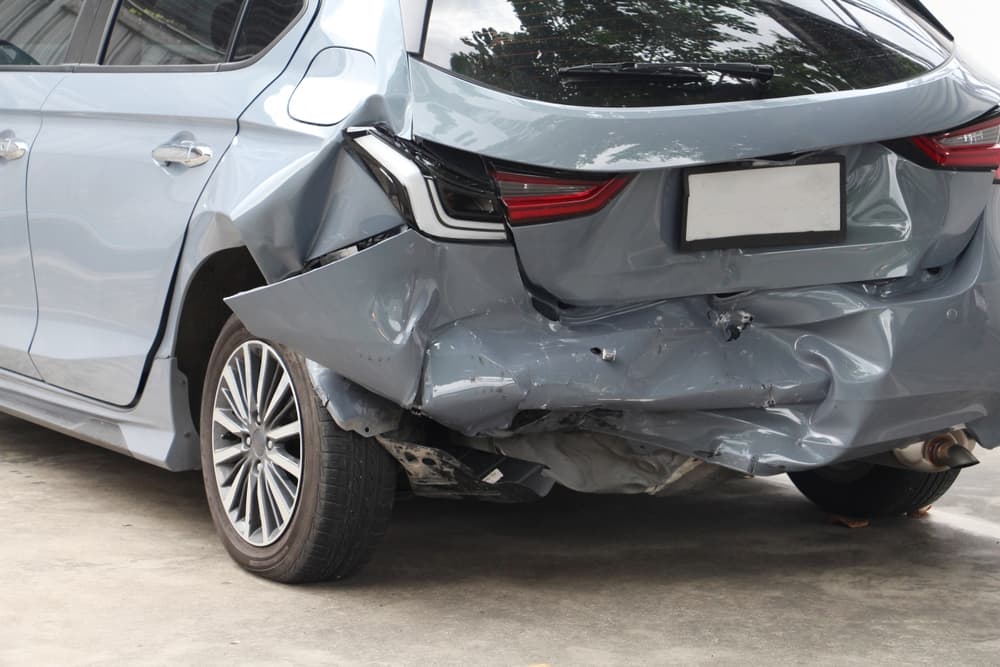In the aftermath of an accident, whether it be a car crash, slip and fall, or workplace incident, victims often face many challenges. One of the most pressing concerns is how long they have to file a claim for injuries sustained during the incident.
The timeline for claiming injury can significantly impact a victim’s ability to receive compensation for medical bills, lost income, and pain and suffering.
When you've suffered an injury in an accident, do not hesitate to seek legal guidance from a skilled car accident attorney. A lawyer can assess your situation to determine how long you have to file your claim and work promptly to get you the monetary recovery you deserve.
Understanding Statutes of Limitations
A statute of limitations is a law that sets the maximum time after an event, within which, egal proceedings may be initiated. The time limit varies significantly based on the type of claim and the jurisdiction in which the accident occurred. Here are some general guidelines:
Personal Injury Claims
For personal injury claims, the statute of limitations typically ranges from one to six years, depending on the state. Most states impose a two to three-year limit, but some allow up to six years for certain types of injuries.
For example, in Virginia, the statute of limitations for personal injury is two years, whereas in Maine, the time limit is six years.
Property Damage Claims
In cases involving property damage, the time frame is generally similar to personal injury claims. Most jurisdictions allow between three to six years to file a property damage lawsuit.
Medical Malpractice
In a medical malpractice case, victims suffer harm as a result of a medical professional’s wrongdoing. In these cases, the statute of limitations is usually shorter, often ranging from one to three years.
Additionally, some states have specific rules regarding when the clock starts ticking, especially if the injury is not immediately apparent.
Wrongful Death
In a wrongful death case, a victim’s death is caused by another’s negligent or intentional actions. In these cases, the statute of limitations can vary significantly, typically falling within the one to three-year range. This time limit usually starts from the date of death rather than the date of the accident.
Factors Influencing the Legal Time Frame

Several factors can influence the timeline for filing a claim after an accident, with the following being some of the most significant.
Type of Accident
The nature of the accident plays a critical role in determining the statute of limitations. Different types of incidents, such as vehicular collisions or slip and falls, commonly have varying time limits for filing claims.
State Laws
Each state has its own set of laws and regulations regarding personal injury claims. It’s essential for victims to be aware of their state’s statutes of limitations and any special provisions that may apply to their cases. Understanding state laws can be confusing, but a skilled personal injury lawyer can help you understand the laws concerning your situation.
Discovery Rule
Many states recognize the “discovery rule,” which allows the statute of limitations to be benign when the injury party discovers – or should have reasonably discovered – the injury. This can be particularly relevant in certain cases, such as medical malpractice or toxic exposure, where injuries may not be immediately apparent.
Minor Status
In several jurisdictions, if the injured party is a minor at the time of the accident, the statute of limitations may be extended. For instance, many state statutes of limitations don’t begin running until the minor turns 18, allowing them a certain period of time to file their claim thereafter.
Settlement Negotiations
It’s common to feel pressured to settle insurance claims quickly, especially when time is ticking. It’s important to understand that informal negotiations with insurance companies do not pause the statute of limitations. If a fair settlement is not reached, you must be prepared to file a lawsuit within the applicable time frame.
Why Timing Matters
When you've suffered an injury in an accident, timing is everything. Understanding the importance of timing cannot be overstated. Filing a claim within the allowed time frame is essential for numerous reasons, including the following.
Preservation of Evidence
Over time, evidence can deteriorate or become lost. Witnesses may forget details or become unavailable. Promptly filing a claim helps preserve critical evidence that can support your case.
Stronger Case
The sooner a claim is filed, the fresher the details are in the minds of those involved. This can lead to more credible testimonies and a stronger case overall.
Financial Necessity
Medical bills and other expenses can quickly pile up after an accident, especially one involving catastrophic injuries. Timely filing can help ensure you receive the compensation you need to cover these costs.
Legal Representation
Waiting too long to seek legal representation can be detrimental to your case. Attorneys often require time to build a strong case, gather evidence, and negotiate with insurance companies. The sooner you hire an attorney, the better it is for your case.
Steps to Take After an Accident
If you’ve been involved in an accident and are considering filing a claim, the following steps can help you greatly. What you do following an accident can impact your rights and the time you have to take action.
Seek Medical Attention
Your health should always be your top priority. Even if you feel fine, it’s wise to get a medical evaluation to better understand your physical state post-accident. It’s not uncommon to sustain certain injuries that do not immediately show signs, like internal injuries or brain injuries. The sooner you get proper medical attention, the better it is for your physical health and well-being, and the quicker you can begin your recovery.
Document the Incident
Gather as much evidence as possible. If you were able to collect evidence at the scene, including photos and witness information, keep it in your records to provide to your lawyer. As more evidence becomes available, including medical documentation, bills, and receipts, maintain everything for your future claim.
Notify Your Insurance Company
Report your accident to your insurance provider as soon as possible. Regardless of fault, most insurance companies want to know when an insured vehicle has been involved in a collision.
Provide your insurer with information concerning your accident. However, be cautious when providing detailed statements without consulting a personal injury lawyer.
Consult with a Personal Injury Attorney
An experienced attorney can help you understand your rights and options, navigate the claims process, and ensure that you meet all necessary deadlines. Having a lawyer on your case ensures your claim is handled timely and efficiently to get you the best result.
Keep Track of Deadlines
Be aware of the statute of limitations in your state and keep track of any relevant deadlines. Set reminders to follow up with your attorney or file necessary paperwork.
Exceptions to the Statute of Limitations
While the statute of limitations generally applies, these are exceptions that can extend or toll (pause) the time limit. When you consult with a personal injury lawyer, you can discuss any potential exceptions that may apply to your case to better understand how much time you have to file your injury claim.
Disability or Incapacity
Some accident injuries result in serious complications, incapacitating victims. If you are incapacitated due to your injuries, your state may allow the statute of limitations to be extended until you regain the ability to manage your affairs.
In certain jurisdictions, being a minor is also considered an “incapacity,” As mentioned, minors may have additional time to file their claims once they reach the age of majority.
Fraud or Concealment
If the defendant engages in fraudulent behavior to conceal their wrongdoing or the injury, the statute of limitations may be extended.
To toll the statute of limitations, the victim must show the defendant concealed the cause of action fraudulently. If successful, the statute of limitations can be extended from the time where the claim is discovered or should have been discovered.
Government Claims
Sometimes, the government is involved in an injury claim. For example, if you suffered an injury in a car crash caused by a road hazard, the government may be at fault for neglecting road maintenance and repairs.
If the accident involves a governmental entity, there are often shorter timelines and specific procedures for filing claims against the government. Cases involving the government require legal assistance, as these claims can be more complex.
Personal Injury Claims Can Be Lengthy and Complicated
Personal injury claims can be complex, requiring more time and energy. Therefore, when you’re hurt by a third party, it’s essential to seek legal guidance right away. The sooner you begin the process, the quicker you can proceed with your claim and obtain compensation for your injuries and losses.
Determining Cause
In some cases, the cause of the accident is clear. But in others, a thorough investigation is required to determine what caused the incident.
Figuring out the cause of your accident is a key part of an injury claim. You must show how the incident occurred and link the cause of the accident to the defendant’s actions. Once you determine the cause of your accident, liability is usually clearer.
Establishing Liability
It is not enough to simply claim a party is at fault, you must also prove it. Establishing negligence is easier in some claims and much more challenging in others, especially when the insurance company tries to deny or shift liability.
Many parties can be responsible for an accident and resulting injuries, depending on the type of incident. For example, in a truck accident, the truck driver, the trucking company, and the cargo loader are just some of the various parties that can be liable. It is often necessary to investigate to determine which parties can be held financially responsible.
The more complex the case and the more parties involved, the more exhaustive the process of determining and proving liability can be.
Gathering Evidence
Evidence can make or break a personal injury case. Collecting evidence is yet another time-consuming (but essential) aspect of these types of claims. Some of the evidence that can help support your claim includes:
- Photographs
- Videos
- Traffic camera or surveillance footage
- Witness statements
- Police and accident reports
- Expert witness testimony
- Maintenance records
- Medical records and bills
Your personal injury attorney can gather evidence throughout their investigation and your case. Getting the right evidence can take some time, which can play a part in how quickly you file your injury claim.
Calculating Damages
Understanding the value of your claim is particularly important to ensure you get the damages you’re entitled to. Depending on the specifics of your case and state law, you can be entitled to recover compensation for:

- Lost earnings
- Diminished or lost earning capacity
- Pain and suffering
- Disability
- Scarring and disfigurement
- Loss of enjoyment of life
It can take some time for your lawyer to assess the extent of your expenses and losses and assign a monetary value to your case. Rushing through this process can result in getting less for your claim, so it’s vital to take the time to properly evaluate and calculate damages.
An Attorney Can Help Ensure You Don’t Miss Your Opportunity to Pursue Justice and Compensation
Understanding how long you have to claim injury after an accident is important for ensuring you receive the compensation you need and deserve. With various statutes of limitations and factors that can influence these timelines, it’s essential to act promptly. Seek medical attention, collect evidence, and consult with a qualified personal injury attorney at Right Path Law to handle your claim.
Every injury case is unique, and only an experienced legal professional can provide tailored advice based on your specific situation. Your lawyer can help you understand how long after an accident you can claim injury to avoid missing critical deadlines and forfeiting your right to financial recovery.
Don't underestimate the importance of having a professional advocate in your corner during the aftermath of an injury accident. Call a personal injury attorney near you today.

